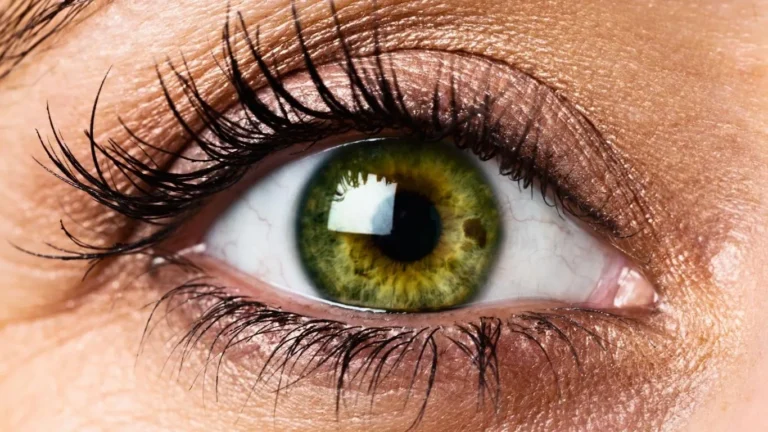Why Asthma Might Be Causing Those Strange Tongue Sensations
Ever had a strange feeling in your tongue—tingling, numbness, or maybe a metallic taste—right when your asthma was acting up? You’re definitely not alone. Many people with asthma report odd sensations in their mouth or tongue, especially during flare-ups or after using certain medications. It can be confusing and even a little scary, especially if it’s new.
Let’s break it down simply and explore what’s really going on. We’ll also share some helpful lifestyle tips and expert-backed insights to give you clarity and relief.
Understanding Asthma and Tongue Sensations
Asthma is a chronic condition where the airways in your lungs become inflamed and narrowed, making it harder to breathe. Common symptoms include wheezing, coughing, chest tightness, and shortness of breath.
But what does your tongue have to do with any of this? More than you might think.
Weird tongue sensations—like tingling, numbness, or a burning feeling—can be linked to asthma in several ways:
- Medication Side Effects: Inhalers, especially those with corticosteroids or bronchodilators, can sometimes cause dry mouth or an unusual taste.
- Oral Thrush: Steroid inhalers can increase your risk of developing oral thrush (a fungal infection), which may cause a white coating, soreness, or odd sensations on your tongue.
- Allergic Reactions: Asthma often overlaps with allergies. A mild allergic response (like Oral Allergy Syndrome) can make your tongue tingle or feel weird after eating certain foods.
- Anxiety and Hyperventilation: During asthma attacks or stressful moments, people may breathe rapidly, which can lead to dry mouth or a pins-and-needles sensation in the tongue and lips.
So while asthma may not directly attack your tongue, the ripple effects from medications, breathing changes, and related conditions can absolutely make your mouth feel off.
Foods and Habits That Can Help Ease Mouth and Tongue Discomfort
If you’re experiencing weird tongue sensations and have asthma, a few tweaks in your diet and daily habits can go a long way. Here are some tried-and-true strategies:
-
Rinse After Using Your Inhaler
Always rinse your mouth out with water after using a corticosteroid inhaler. This simple step can help prevent oral thrush, a common culprit behind tongue irritation.
-
Stay Hydrated
Dry mouth can exaggerate tongue sensations. Drinking enough water throughout the day keeps your mouth moist and helps reduce irritation.
-
Try Probiotic-Rich Foods
Yogurt, kefir, and fermented foods support oral and gut health, which may reduce your risk of thrush or other fungal imbalances.
Tip: Choose unsweetened options to avoid feeding bad bacteria in your mouth.
-
Include Omega-3 Fatty Acids
Foods like salmon, flaxseeds, and walnuts are rich in omega-3s, which may help reduce inflammation linked to asthma and allergic reactions.
Usage tip: Try adding ground flaxseed to smoothies or oatmeal for a simple boost.
-
Avoid Trigger Foods
For some people, raw fruits and vegetables (like apples, carrots, or celery) may cause Oral Allergy Syndrome—leading to a tingling or itchy tongue. If you notice this, lightly cooking these foods can help reduce the reaction.
-
Use a Humidifier
Dry indoor air can make your mouth feel even drier, especially at night. A cool-mist humidifier helps maintain moisture in the air and may ease tongue discomfort.
What Experts Say
Dr. Emily Howard, a board-certified allergist, explains: “People with asthma often don’t realize how much their medications and allergic tendencies can affect the mouth. Practicing good oral hygiene and being aware of food sensitivities can really help.”
According to the Mayo Clinic, one of the best ways to prevent oral thrush from inhaler use is to rinse and gargle after every dose. They also suggest seeing your doctor if tongue symptoms persist for more than a few days.
A 2021 study published in the Journal of Asthma and Allergy found that around 14% of patients reported oral or tongue-related side effects from asthma medications, especially if proper inhaler hygiene wasn’t followed.
Extra Tips (That Might Surprise You)
- Switch to a Spacer Device
If you use a metered-dose inhaler, using a spacer can reduce the amount of medication that sticks in your mouth and throat—minimizing side effects like tongue numbness or thrush.
- Suck on Ice Chips
For immediate relief from tongue burning or irritation, sucking on ice chips can numb the area slightly and ease discomfort—just avoid doing this too frequently if you have sensitive teeth.
- Check Your Toothpaste
Some people react to sodium lauryl sulfate (SLS) in toothpaste, which can irritate the tongue and gums. Try switching to an SLS-free version to see if it helps.
- Manage Stress
Stress and anxiety can worsen both asthma and oral symptoms. Try calming techniques like deep breathing, gentle yoga, or mindful meditation for whole-body relief.
Note: These tips aren’t meant to replace medical advice. Always consult with a healthcare provider if your symptoms persist or worsen.
Final Thoughts
Weird tongue sensations can be frustrating and confusing, especially when you’re already managing a chronic condition like asthma. But you’re not imagining things—there are real, science-backed reasons behind these symptoms.
The good news is, many of the causes are manageable with small lifestyle tweaks and good self-care habits. What works for one person might not work for another, so it’s always smart to keep track of your triggers and talk to your doctor about anything that feels off.
With the right tools and information, you can breathe easier—and feel more comfortable in your own mouth, too.

Bianca Nala is a compassionate Nurse Practitioner with a strong background in primary and respiratory care. As a health writer for Healthusias.com, she combines her clinical expertise with a talent for clear, relatable storytelling to help readers better understand their health. Bianca focuses on topics like asthma, COPD, chronic cough, and overall lung health, aiming to simplify complex medical topics without losing accuracy. Whether she’s treating patients or writing articles, Bianca is driven by a single goal: making quality healthcare knowledge accessible to everyone.







